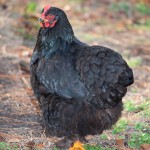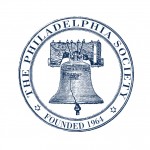A speaker at last weekend’s 50th Anniversary Celebration of The Philadelphia Society suggested that one thing that draws us together is our shared character as “people of the book.” Our past presidents spoke eloquently on Sunday morning about the purposes of our Society and its importance for the future, perhaps the most important orientation I could receive for my new role as the Society’s Secretary and Executive Director. For half a century, The Philadelphia Society has not only held open and oriented its members to a vision of the future in which liberty remains possible but has offered periodic respite for the “unadjusted” men and women who have chosen the uncommon road to liberty rather than serfdom.
But is liberty indeed our true north? Saturday morning panelist Patrick Deneen challenged us to reconsider at least the rhetorical centrality of liberty to our endeavors, suggesting that collectivists often invoke “liberty” (what we more properly would call autonomy) as the end of their collectivism. It was a good reminder to think more about how we understand and represent what we have often called “ordered liberty.”
Hat tip to Bridgett Wagner who sent me this morning required reading from Anthony Esolen. Writing in Crisis, Esolen finds the opportunity to remind us about reflecting on the first principles of our education:
The trick is to raise people who will not give the field over to the academics, the experts, the well-heeled recipients of grants for discovering what they knew they had damned well better discover in order to justify the grant. Academe is a cauldron of eels. It is stuffed full of poseurs and liars. The trick is to raise people sagacious enough to distinguish between a falsehood even if propped up by sophistication, and a truth even if naively or poorly expressed.
OUR education. At face value, Esolen’s essay is a critique of the current fetishization of standards in our nation’s public schools. If what he says about education is true, as I believe it is, then it must apply as well to the education we seek out daily, and especially the education we offer to one another when we come together. What Esolen says about the ends of education must apply not merely to the education of our children but also to the ways we ourselves make opportunities to teach and to continue learning.
The Philadelphia Society certainly welcomes academics, policy experts, politicians, and other sorts of potential eels to our conversations. What distinguishes Philly Soc, however, is that our time together teaches most of us to be less eelish. So many of our speakers during our weekend celebration lifted our sights to truth, beauty, and goodness and exhorted us to think on these things.
When we take our departures from one another after each Philly Soc meeting, it seems to me that we go out reminded that wherever we return in our daily work– to study and teach the poems of Wendell Berry or the history of the Progressive movement; to battle the dragons of the Common Core; to compose editorials advocating tax reform; to parse the text of the latest bill before Congress; to interpret the latest Supreme Court decision; to lobby for X, Y, or Z; or to run for political office–we don’t have to choose to be eels, though so many of our modern institutions incent eelism.
Esolen reminds us:
You do not read good books so that you can scramble up some tricks, so that you can write clever things about them, so that you can do well on a test and secure a prestigious job and then die. You learn about the language and about what writers do, so that you can read good books and learn to love them, because they are companions who will tell you what they have seen of the truth, and they tell you it in a way you will not soon forget.
And so we say about The Philadelphia Society. In one another’s company we may “network” and job hunt and curry favor for our respective causes, but we do not merely do these things. Above all, we remind one another that we carry on our respective academic studies, our policy analysis, our political action, and our very living with higher ends in mind. We remind one another that our humanity is at once the fundamental end and the fundamental stumbling block.
Frank Chodorov, who co-founded with Bill Buckley the Intercollegiate Society of Individualists, now known to us as ISI, reminded us that we must always begin with man. Inviting us to understand the anthropological, historical, and economic foundations of our conservative principles, Chodorov observed:
The proposal to keep political power so decentralized that it cannot escape the vigilance of social power rests its case on the assumption that the highest value in man’s hierarchy is freedom. Does he put it above all other desires? Even material satisfactions? If so, what does he mean by freedom? The definition that quickly suggests itself is “absence of restraint.” The lone frontiersman had plenty of that kind of freedom and found it wanting; he was quite willing to part with some of it in exchange for the higher wages that came from cooperation with others. But cooperation entails an obligation, that of shaping one’s behavior to the wishes of others, of considering public opinion both in one’s occupation and in one’s deportment. So then, freedom in Society is not the absence of restraints, but the management of one’s affairs by a code of self-governance. (The Rise and Fall of Society, 163-4)
To the extent that The Philadelphia Society helps us reflect upon, argue over, and refine our understanding of first principles, to that extent it does its job. We come together periodically in order to renew our conversation about first principles so that we may then go forth again to engage the world with a renewed sense of what is worth fighting for.
(And, yes, for me liberty rightly understood is one of those things!)
I look forward, and am honored, to have the privilege of serving the purposes for which we gather and of seeking to sustain our fellowship between our gatherings. Bill Campbell’s shoes are big ones to fill; I welcome your ideas and encouragement as I take my first steps.
Read Esolen’s full essay here.
Get Chodorov’s book here.






 Understanding Clarence Thomas: The Jurisprudence of Constitutional Restoration
Understanding Clarence Thomas: The Jurisprudence of Constitutional Restoration
